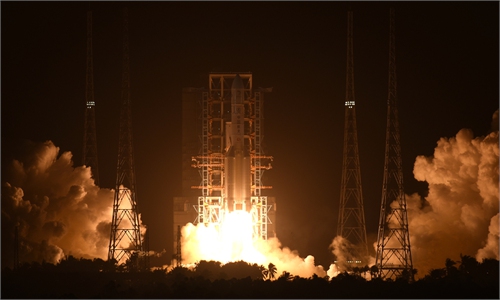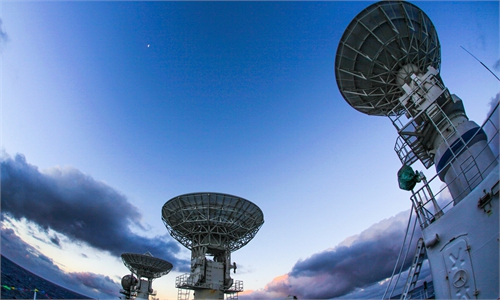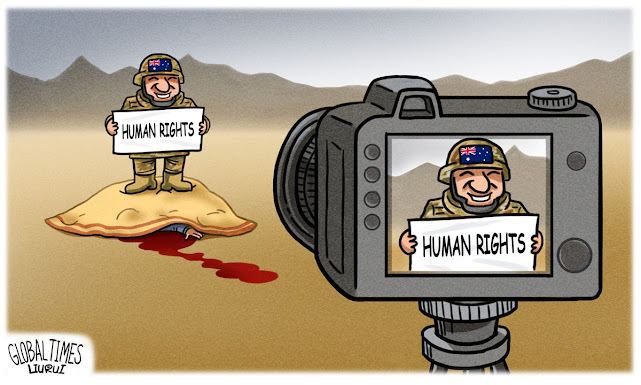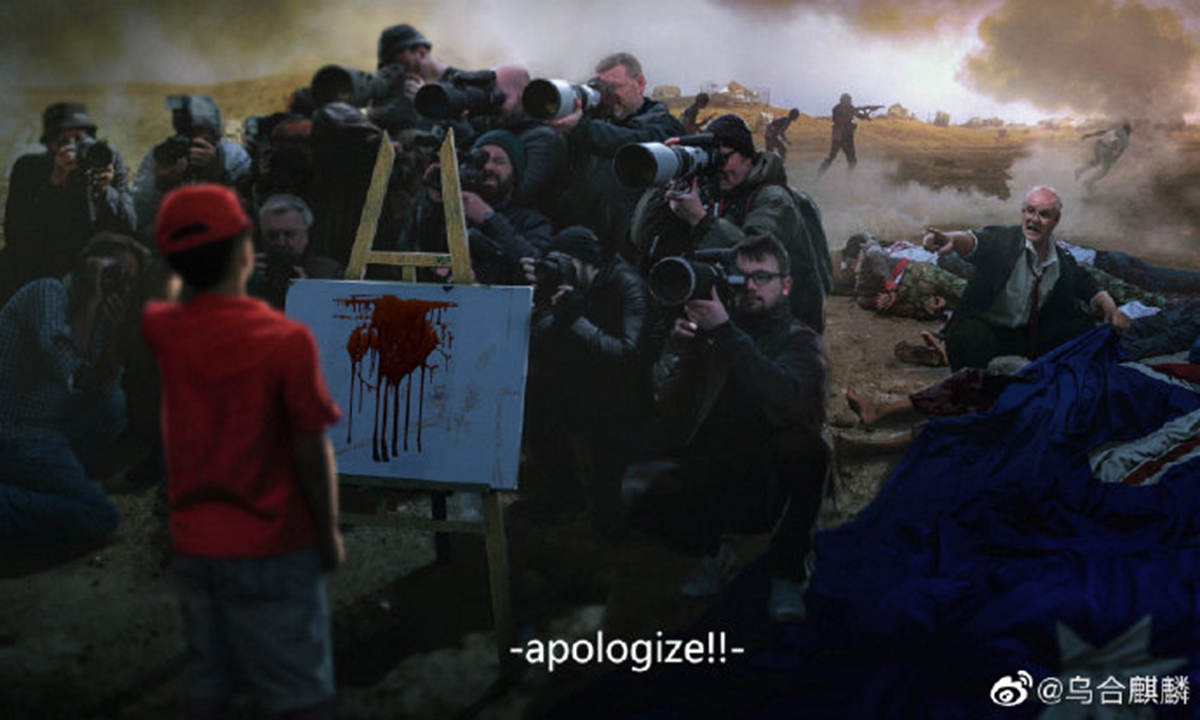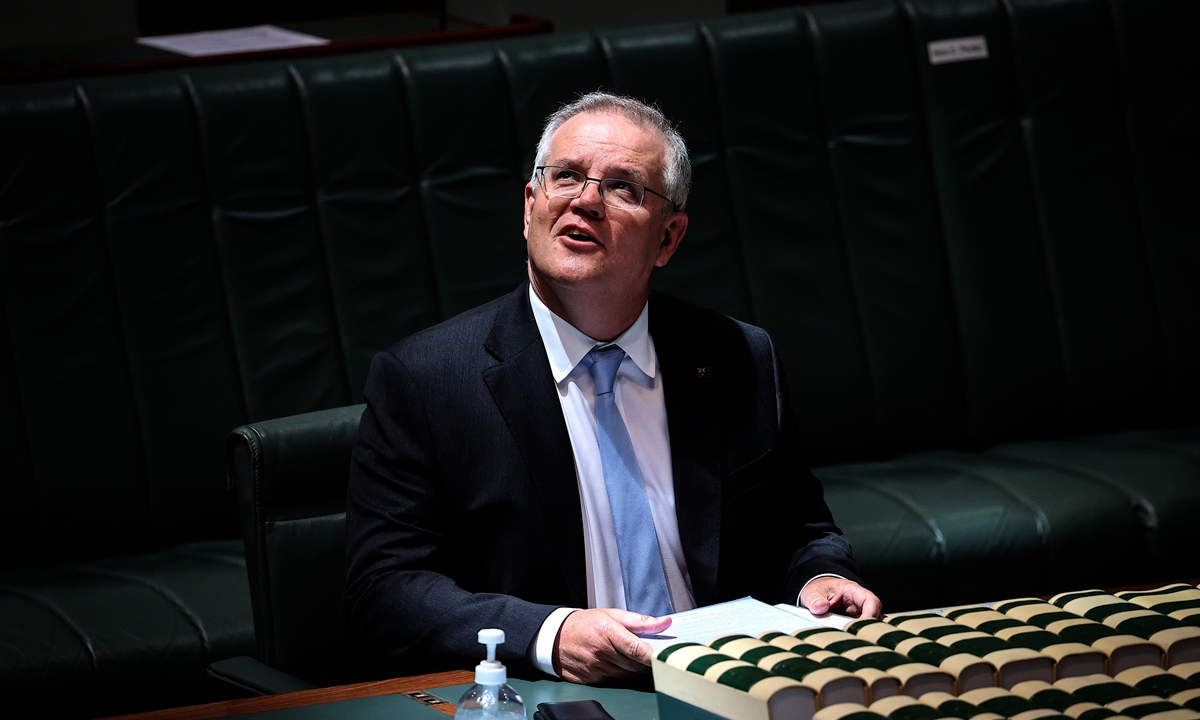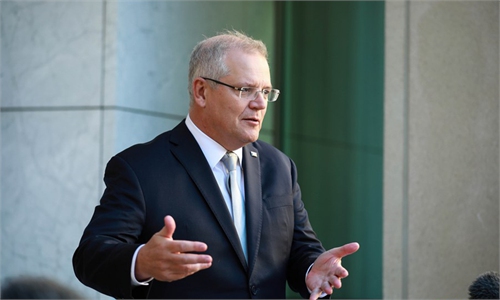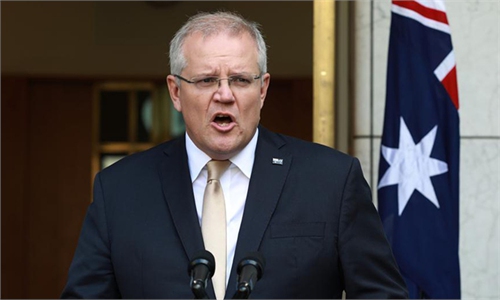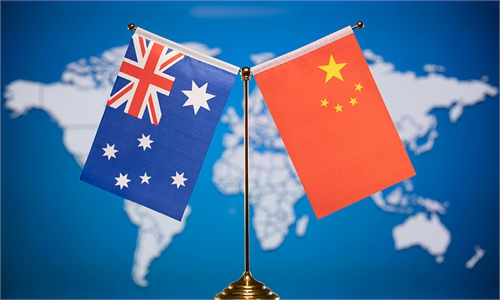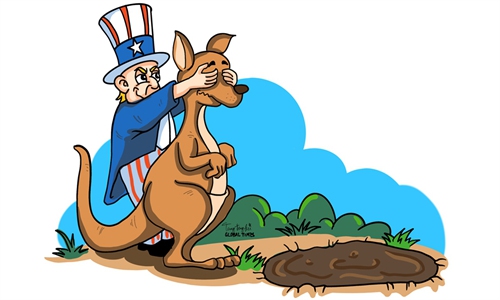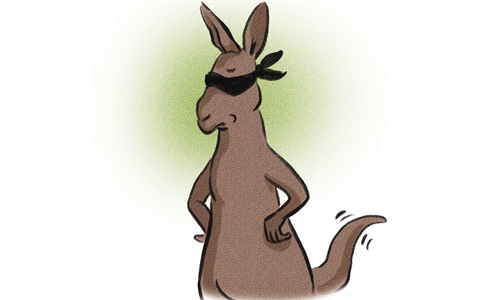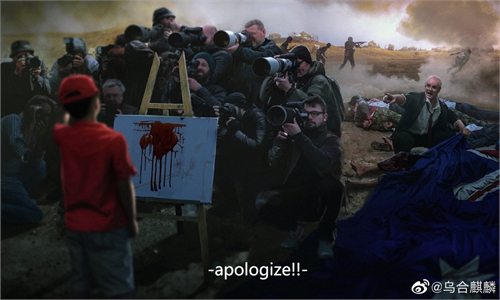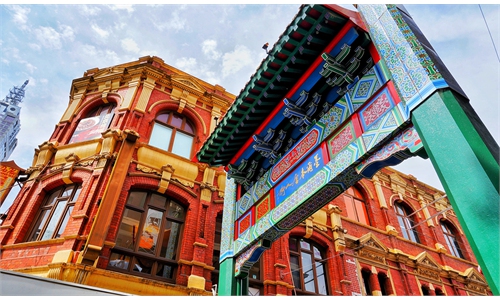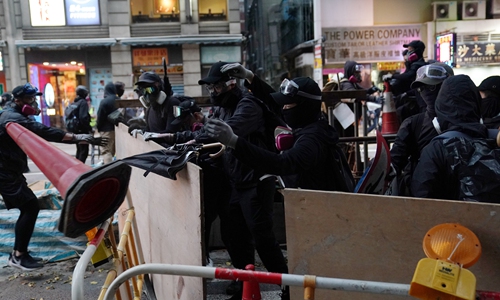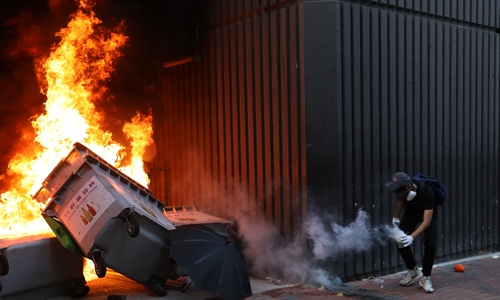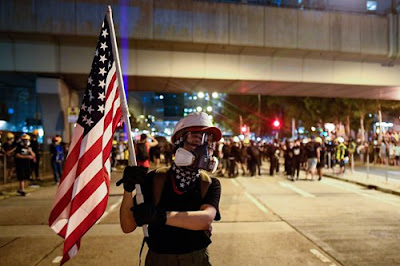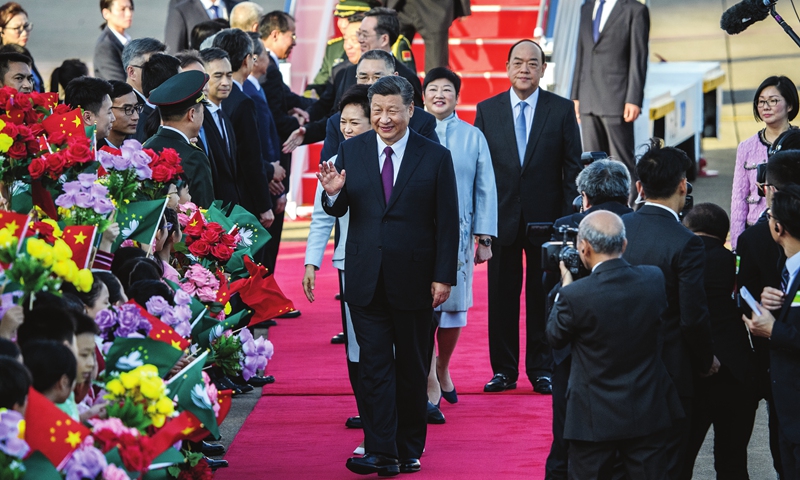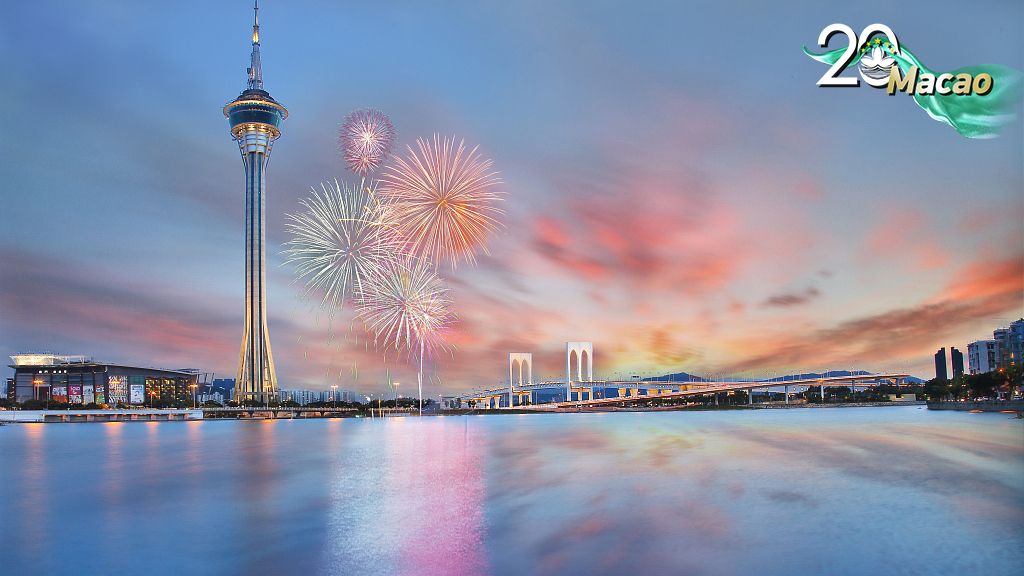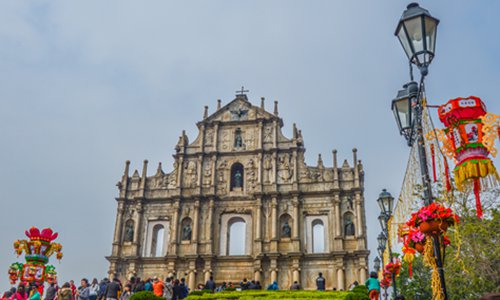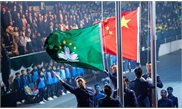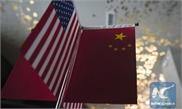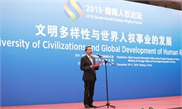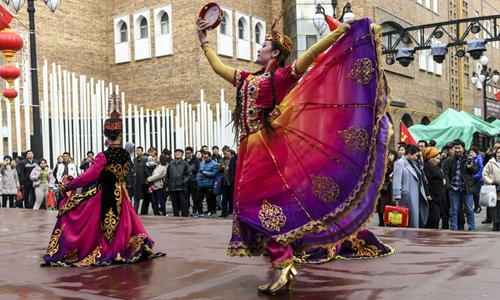
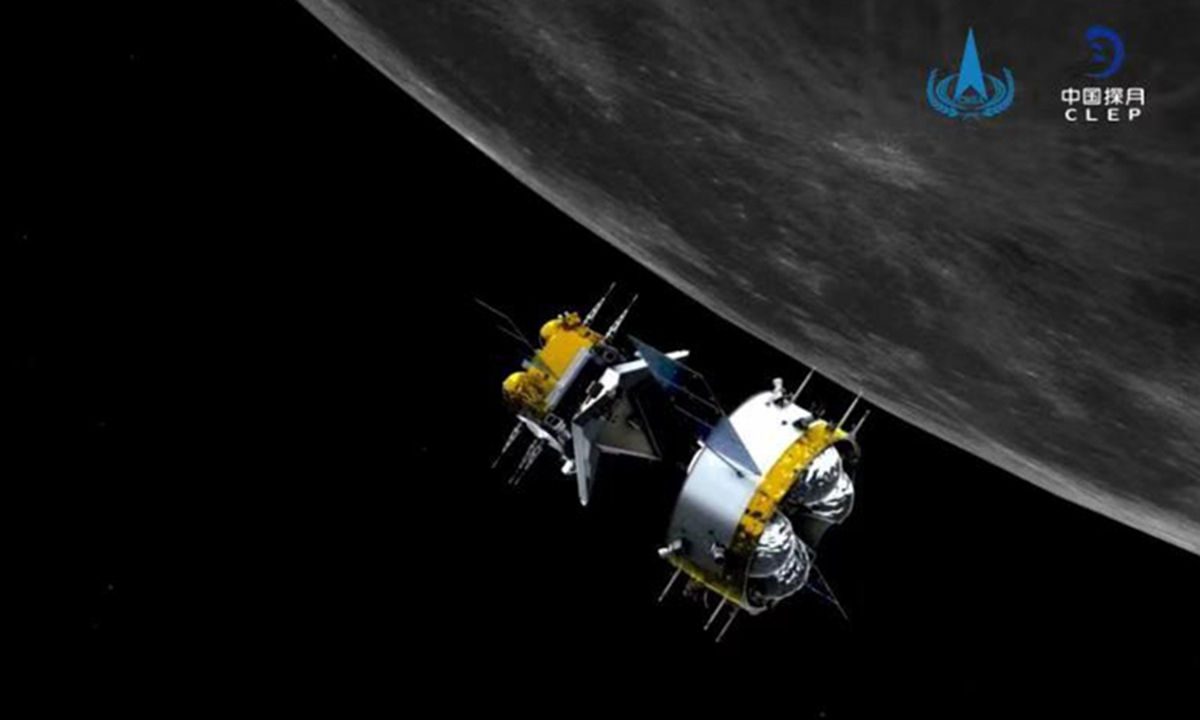 Image released by the China National Space Administration (CNSA) shows
the orbiter-returner combination of China's Chang'e-5 probe approaching
the ascender. Photo: XinhuThe Chang'e-5 capsule carrying rocks and soil from the moon landed safely on Earth early on Thursday. This mirrors China's comprehensive technological progress. Of course, it is not the only pride for China's 2020. In November, the last few impoverished counties, all in southwest China's Guizhou Province, have eliminated absolute poverty, a decisive improvement of China's goal to achieve a moderately prosperous society in all respects.
Image released by the China National Space Administration (CNSA) shows
the orbiter-returner combination of China's Chang'e-5 probe approaching
the ascender. Photo: XinhuThe Chang'e-5 capsule carrying rocks and soil from the moon landed safely on Earth early on Thursday. This mirrors China's comprehensive technological progress. Of course, it is not the only pride for China's 2020. In November, the last few impoverished counties, all in southwest China's Guizhou Province, have eliminated absolute poverty, a decisive improvement of China's goal to achieve a moderately prosperous society in all respects.
China is the most populous developing country in the world. It is very difficult to realize collaborated progress among various sectors. With a limited budget, China has multiple tasks at the same time - it has to encourage developing high-tech abilities, expand room and provide driving forces for social advancement, at the same time strive to improve people's livelihood, and input social fairness into the top design of national strategies.
For a long time, some people believe China has not done enough to balance these developments. Voices have existed that China invested excessive resources to fields such as aerospace. Despite difficulties, compared to other countries, China has tried its best to reach a balance and has achieved positive results.
Since China implemented the reform and opening-up policy, the most prominent and well-known national goal has been achieving a moderately prosperous society. People's livelihood and fairness and justice have always been the focus of attention in Chinese society. A technology-centered national strategy and people-oriented economic development have highly integrated.
In the past few decades, the Chinese people have been developing the aerospace field, but their livelihood has also been improving. The lunar exploration project is not a political vanity project - it is well within the ability of Chinese society.
The progress in high-tech areas such as aerospace has pushed up China's strategic competitiveness overall. At the same time, people are living better lives. Without the advancement in high-tech areas, China's prosperity would lack the backbone and long-term guarantee.
As an emerging major power, China's per capita GDP is not the highest among developing countries. But China's major scientific progress in recent years is undoubtedly the most prominent among developing countries and general developed countries. China is a large country, and this has exerted its unique incubation advantages in promoting major technological progress. This is gratifying.
China has long implemented a market economy, but has maintained the guiding role of the government. This prevents our market economy from repeating and hovering at a low level, and also prevents us from being satisfied with the low-end prosperity of the global value chain. The Chinese nation's self-motivated spirit continues to release momentum, successfully supported by the country's system. Thus, we can move forward in a balanced manner and with a clear sense of direction.
China has not regarded technological development or achievements in aerospace as an overriding goal. Nor has China formed a circle of high-tech elites, separating from the general Chinese public or even leading to the division of the rich and poor. Compared with China, today's aerospace engineering in India is relatively difficult. But it is the Indian people's choice to explore the Moon and Mars no matter how difficult it is.
China's high-tech development still has a long and arduous way to go. We may need to devote more resources to cutting-edge technologies such as aerospace.
Frankly, the Chinese public has principled support for this, but such support has not been fully transformed into preferential treatment of high-tech industries and talent in these fields. There is still a lot of room for us to continue our efforts in this area.
As for China's modernization, it is an indispensable basic progress for our aerospace technology to reach world-class levels. There are unlimited possibilities in space, and most resources that support the human being's future development must be outside the Earth. We need to travel to space step by step, and our good, fair and just social governance will provide strength for this. Our ambitions and dreams will encourage perseverance. Chang'e-5 is just the beginning.
- Chairman Mao's hometown to receive Chang'e-5 moon sample in honor of late leader: CNSA
- Chang'e-5 mission a milestone achievement, lays foundation for future lunar, asteroid missions: CNSA deputy head
- Chang'e-5, welcome back home!
China roadmaps ambitious space projects, starting with 11 launches in next two years
Closely following the complete success of Chang'e-5 lunar sample return mission on Thursday, China's National Space Administration (CNSA) disclosed plans for a slew of ambitious space projects that include a new three-step plan for the country's future moon and deeper space exploration missions, which Wu Yanhua, the CNSA deputy head, referred to as "surveying, constructing, and exploiting," as opposed to the already conquered goals of "orbiting, landing and returning" to the Earth's natural satellite.Moon soil to head for Chairman Mao's hometown
With Chang'e-5 probe making a perfect conclusion to its 23-day journey to the moon, bringing back soil from Earth's celestial neighbor, Central China's Hunan Province, the hometown of the late .
Related posts:
China launches 1st lunar sample return mission, aims for multiple breakthroughs in aerospace history

